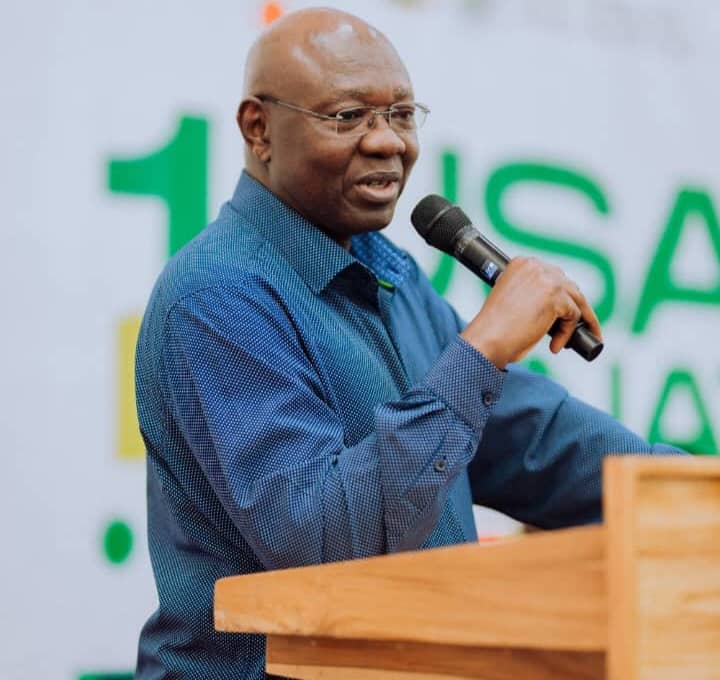The University Students’ Association of Ghana (USAG), which serves as a unifying body representing the collective interests of students across various universities in Ghana, has held the 2023 edition of its leadership summit for students on the theme” Guiding the Solidarity of Student Leaders: The Fortress to Academic Development,” which is of significant relevance to the student body.
Speaking at the summit, former local government minister Akwasi Opong-Fosu noted that leaders are the reflection of society and have a profound impact, which captures the essence of the intricate connection between leaders and the societies they lead. Thus, the values, attitudes, and behaviors of leaders are shaped by the broader social context in which potential leaders operate. This understanding underscores the crucial role of cultivating a better society as a prerequisite for witnessing better leadership.
Akwasi Opong-Fosu advised students that, to contribute their quota to creating a better society, one must embark on a multifaceted journey that encompasses both personal transformation and active social and political engagement.
“Embodying the qualities we seek in our leaders—honesty, integrity, compassion, and a commitment to service—is a fundamental step in this journey. By conducting ourselves with these values, we set a positive example for others and foster a more ethical and responsible society,” he added.
Mr. Opong-Fosu stated that active citizenship plays an equally significant role in shaping a better society, which entails actively participating in civic activities, staying informed about local and global issues, and holding our leaders accountable.
He stressed that by actively participating in shaping the mindset and attitudes of people in communities,the masses can contribute to the creation of a more just and equitable society.
He was quick to add that education plays a pivotal role in cultivating the qualities necessary for effective leadership. In addition to acquiring knowledge, education should focus on developing emotional intelligence, critical thinking, and moral character.
“These qualities are essential for leaders to effectively navigate the complexities of society, make informed decisions, and inspire others.”
He indicated that aspiring to become good leaders should not be seen as people demonstrating to future generations that leadership is about “Aluta Continua” and taking uncompromising positions. He said such positions would lead to the creation of an ungovernable society.
“As we aspire to leadership positions, it is crucial to examine our motivations and purpose. Are we seeking leadership for self-serving reasons—power, privilege, and possessions—or are we driven by a genuine desire to make a positive contribution to society? He quizzed me.
“True leadership is rooted in a commitment to service and a dedication to the common good.”
He further said that the ingredients needed to become a beacon of a good leader should not be traded for power, status, or the assertiveness acquired by the individual, but rather character, integrity, and commitment ought to be the guiding principles.
“Ultimately, our legacy as leaders is not defined by our power, status, or possessions; it is shaped by our character, our integrity, and our impact on the world around us. By embracing the values that foster a better society and striving for transformational leadership, we can leave a lasting positive mark on the world.”








